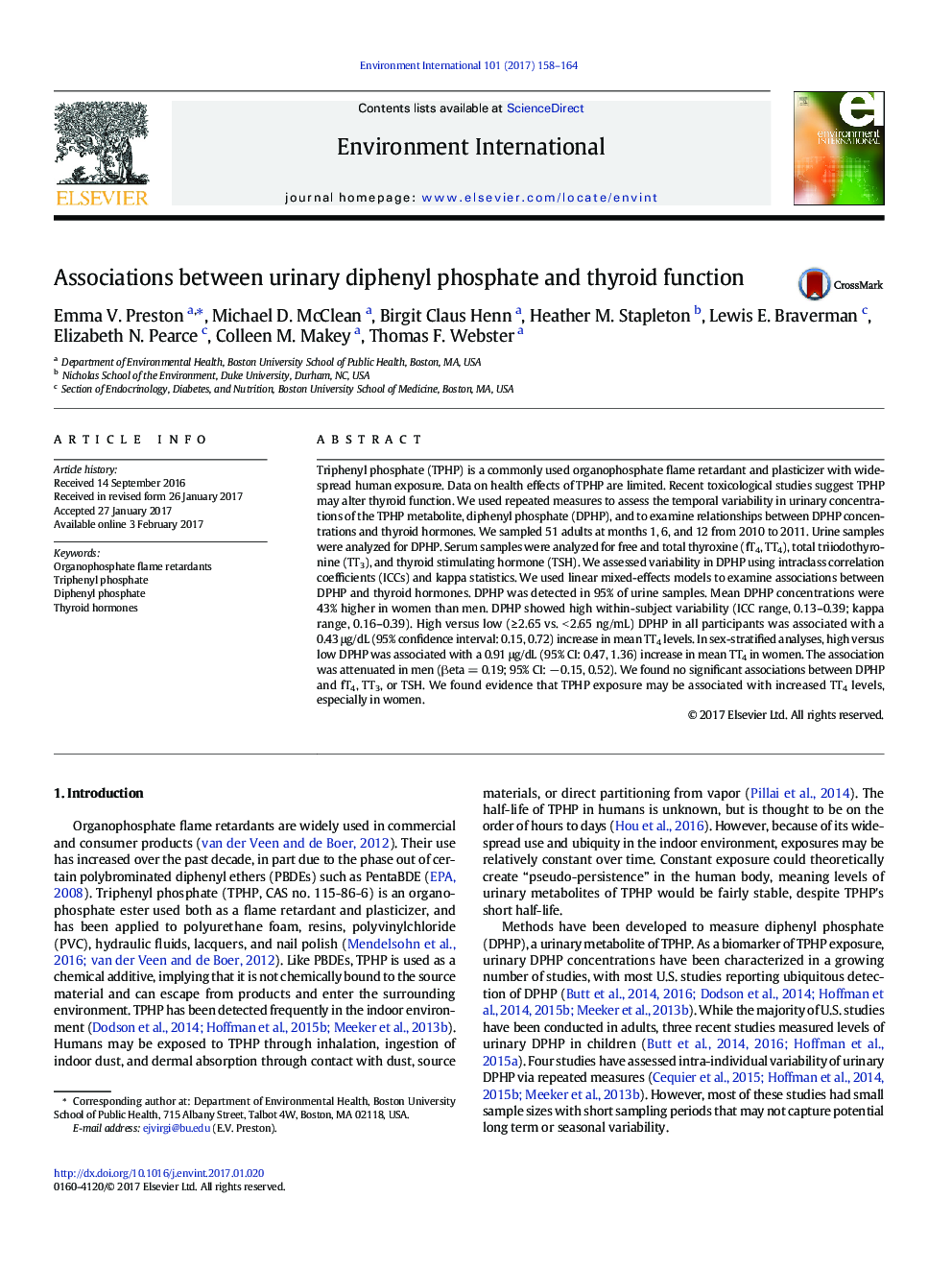| کد مقاله | کد نشریه | سال انتشار | مقاله انگلیسی | نسخه تمام متن |
|---|---|---|---|---|
| 5748285 | 1619029 | 2017 | 7 صفحه PDF | دانلود رایگان |
- Urinary DPHP concentrations showed high within-subject variability over time.
- Geometric mean DPHP concentrations were higher in women compared to men.
- Higher DPHP levels were associated with lower total thyroxine levels in women.
Triphenyl phosphate (TPHP) is a commonly used organophosphate flame retardant and plasticizer with widespread human exposure. Data on health effects of TPHP are limited. Recent toxicological studies suggest TPHP may alter thyroid function. We used repeated measures to assess the temporal variability in urinary concentrations of the TPHP metabolite, diphenyl phosphate (DPHP), and to examine relationships between DPHP concentrations and thyroid hormones. We sampled 51 adults at months 1, 6, and 12 from 2010 to 2011. Urine samples were analyzed for DPHP. Serum samples were analyzed for free and total thyroxine (fT4, TT4), total triiodothyronine (TT3), and thyroid stimulating hormone (TSH). We assessed variability in DPHP using intraclass correlation coefficients (ICCs) and kappa statistics. We used linear mixed-effects models to examine associations between DPHP and thyroid hormones. DPHP was detected in 95% of urine samples. Mean DPHP concentrations were 43% higher in women than men. DPHP showed high within-subject variability (ICC range, 0.13-0.39; kappa range, 0.16-0.39). High versus low (â¥Â 2.65 vs. < 2.65 ng/mL) DPHP in all participants was associated with a 0.43 μg/dL (95% confidence interval: 0.15, 0.72) increase in mean TT4 levels. In sex-stratified analyses, high versus low DPHP was associated with a 0.91 μg/dL (95% CI: 0.47, 1.36) increase in mean TT4 in women. The association was attenuated in men (βeta = 0.19; 95% CI: â 0.15, 0.52). We found no significant associations between DPHP and fT4, TT3, or TSH. We found evidence that TPHP exposure may be associated with increased TT4 levels, especially in women.
Journal: Environment International - Volume 101, April 2017, Pages 158-164
